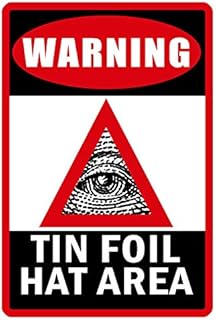Excuse me @Timwort I never insinuated anything about you or your comments. in fact I never mentioned you at all. I honestly did not read the entire post from you. So I am not sure where you misunderstood what I had to say and why you would jump to the conclusion that anything I said pertained specifically to your comments. I certainly don’t know you or your views well enough to pass any judgement either way, nor would I.
Not saying this pertains to this situation but lots of people here will reply to a post without actually using the “reply” button. I don’t think @Miki replied to you directly as he didn’t use the “reply” functionality but it happened to be the post directly below yours so I can see why you may have thought it was a direct reply to your post. This happens more tha
Now I hope I haven’t confused everyone with my “reply” ![]()
Good point tx @MarkxG . I have been posting and replying so long I had forgotten that some think just because there is a reply, immediately below theirs, that it is a reply to them directly and not the topic in general. Oh well no offense given and none to be taken.
Sure @Miki and I thought it was a little out of character from you. My poor assumption wasn’t based on your reply’s location (@MarkxG )![]()
I assumed you were referring to my post because I am the only one saying VPNs aren’t needed (for standard Internet usage by most people) and I told you a bit about my background before… But that’s fine my skin is pretty thick.
Here’s another reason to be careful about VPNs:
These are from Bruce Schneier, noted cryptographer and author of the BlowFish and TwoFish encryption algorithms along with books about encryption and security.
Chinese-Owned VPNs
One one my biggest worries about VPNs is the amount of trust users need to place in them, and how opaque most of them are about who owns them and what sorts of data they retain.
A new study found that many commercials VPNS are (often surreptitiously) owned by Chinese companies.
It would be hard for U.S. users to avoid the Chinese VPNs. The ownership of many appeared deliberately opaque, with several concealing their structure behind layers of offshore shell companies. TTP was able to determine the Chinese ownership of the 20 VPN apps being offered to Apple’s U.S. users by piecing together corporate documents from around the world. None of those apps clearly disclosed their Chinese ownership.
The report mentioned:
This is another:
VPNs and Trust
I am afraid you made a mistake @Timwort . You may have been one person talking about not needing a VPN this time, but you’re far from the first. This topic raises it’s ugly head every few months. I certainly never cast aspersions or insinuate, I would simply come out and name ppl. But as I said, no harm and no fowl, I know now why you made your comment but also know now that you simply mispoke. Tx to @MarkxG for pointing that out. I trust Proton and did my research before buying. They have passed many top line audits and even a major bank in Canada will only allow the use of Proton email for passcodes due to their strong encryption protocols. May be Proton is just a rare commodity in the VPN world.
Too many reasons to list here re why you should be running a VPN. Especially one that is located outside of the US and does not keep logs. A lot of people don’t realize that if a VPN company is located in the US, they must keep logs of all transactions and authorities can seize those logs at any time. I always use a VPN on all of my devices, even my TV stream.
Proton fan here. Tried SS & Express. Kept coming back to Proton.
I’m just trying to understand the actual mechanics of a personal VPN and found this.Asking the VPN gurus if this sounds correct.
A VPN hides your IP address by letting the network redirect it through a specially configured remote server run by a VPN host. This means that if you surf online with a VPN, the VPN server becomes the source of your data. This means your Internet Service Provider (ISP) and other third parties cannot see which websites you visit or what data you send and receive online. A VPN works like a filter that turns all your data into “gibberish”. Even if someone were to get their hands on your data, it would be useless.
Yes sir, encrypted tunnels. I would like to point out that many companies use “virtual” servers. The Service I use has all brick and mortar servers, actual “physical” servers that they own. Here is a quick quote:
In VPNs, a physical server is a standalone, dedicated piece of hardware, while a virtual server is a software-defined environment hosted on a physical server. Virtual servers offer cost and scalability advantages, but physical servers may provide better isolation and security.
@Razman, Here is what I found about SurfShark.
Since Surfshark VPN is based in the Netherlands, a country with no data retention laws, we’re not required to keep logs of your surfing habits
Exactly why I use it.
Hi my streaming colleagues, just a quick thought. I have Nordvpn until March of next year. Haven’t had any issues and like it. Any issues one way or another?
I think we need to discuss this important topic every now and then. It’s certainly provides me with a lot of information and I can see both sides of this issue. Thanks to everyone who has responded!
How does anyone actually know what they are doing with your data.
Because you only have their word for it and you don’t see behind the scenes.
They may actually be just harvesting data and you are paying them to do it.

My foil hat has two antenna. Better reception. I’m all about the speed. ![]()
But then again, maybe they’re being honest. I know it’s rare, but it does happen.
It was just a bit of joke really Miki.
I would imagine someone would have blown the whistle by now.
Lol. Aha, makes sense. Have a good weekend.
